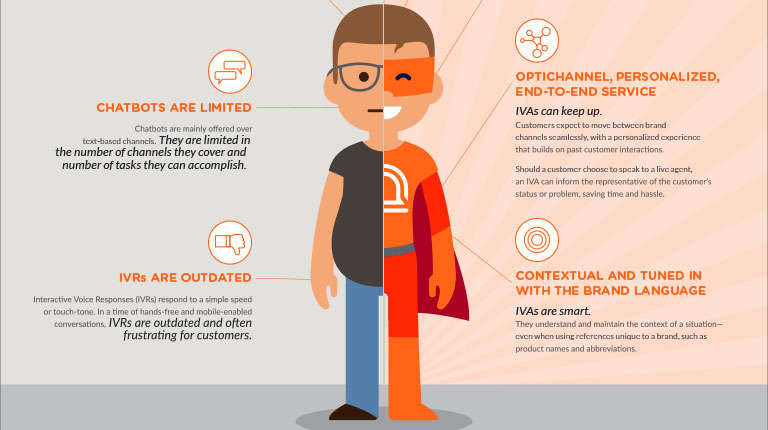Just a couple days ago, fans around the world wished Michael J. Fox aka “Marty McFly” of Back to the Future, a happy 60th birthday. Seeing that made me remember how that movie shaped my vision of what the future would bring: flying cars, video conferencing, personal drones, and even self-tying shoes.
While we have not quite seen all of the great inventions featured in the movie series come to fruition (here’s a full list of those predictions they did get right), there is no doubt that technology has rapidly advanced over the years. And with that, consumer reliance on technology as well as consumer comfort in using that technology, has also increased.
One technology in particular rose to the forefront during the recent pandemic. Businesses, across industries, turned to artificial intelligence (AI) to help keep operations running smoothly when the world suddenly came to a screeching halt. With social distancing rules and shutdowns in place, AI-powered robots and applications helped to do things like restock grocery store shelves, perform temperature scanning, and automate business-to-consumer communications. Many consumers were using AI and becoming dependent on it. Most without even knowing it.
We recently surveyed consumers to find out what their comfort level was across a variety of everyday AI applications in the following categories: business, home, healthcare, and on the road. Here’s some highlights of what we found. You can see the full results here.
Survey says…consumers love Alexa and personalization
Most consumers are comfortable with the majority of AI applications in their daily lives today. For example, when it comes to smart devices like Alexa, Amazon Echo, and Google Home, 62% of people said they are comfortable with having these types of devices in their homes. And, the majority of consumers (68%) are comfortable with companies like Netflix and Spotify using previous activity on their platforms to make recommendations and personalize future experiences.
In the area of healthcare, consumers were generally comfortable with AI when it came to the more administrative or behind-the-scenes roles. Seventy-six percent of respondents are comfortable with their doctor’s office or local hospital using disinfectant robots to create a more sanitary environment. However, when it comes to the idea of robots being actively involved in care, people are slightly less comfortable. Only 50% percent said they would be comfortable with a robot taking their temperature and other vitals at the doctor’s office or hospital.
However, consumers aren’t ready for all AI applications
Consumers aren’t quite ready to wholeheartedly embrace all AI applications. Most respondents, for example, are still uncomfortable with the idea of jumping into a self-driving taxi, with only 37% saying they would if given the opportunity today. People are also not comfortable putting their career in the hands of a non-human. A large majority (72%) of people said that they would not be comfortable with job interviews conducted by robots. And nothing replaces the human touch when it comes to family. Only 38% of people said they would be comfortable with a companion robot visiting their elderly relatives in their hospitals or long term care facilities. (Just don’t tell Rosie from the Jetsons that!)
AI in customer care: Consumers want more
One area that consumers are very comfortable using AI applications is in customer care. Our survey found that most consumers (65%) said that they are comfortable speaking with an AI-powered customer service solution, provided they can speak normally and get their problem resolved quickly. In fact, the majority of consumers (82%) are hoping that companies at the most maintain and even expand AI-powered customer service solutions and other digital channels post-pandemic.
The 411: Implementing AI in customer care
In addition to consumers clamoring for more AI-powered customer solutions and digital channels, customer care automation also provides many business benefits. Specifically, Conversational AI has been instrumental in improving customer satisfaction, decreasing costs, and increasing revenue. But although you may want to jump in full force to meet the demands of your customers, in order to have a successful implementation and deliver the experience your customers want, there are many things to consider. Here are some highlights.
Determine the experience you want to deliver…
Conversational AI applications vary in levels of complexity and can result in dramatically different end products, and thus different experiences, for the end user. With that said, before choosing a Conversational AI solution for your business, it is important to determine not only your business goals, but also the experience you want to deliver to your customers.
Virtual customer assistants, also known as virtual assistants or agents, are becoming increasingly popular as a way to provide customer service conversations at scale because they offer a more conversational and natural way for consumers to interact.
Consumers are not limited to typing or speaking in a certain way or using specific words or text to solicit responses. The result is a more effective and productive interaction that mimics a conversation with a real human and an excellent custom experience.
…on what channels…
Virtual customer assistants can also easily scale across channels to grow with your business to meet new and changing business goals. Some applications, like chatbots, are limited to text only channels. If you want to continue to expand your channel offerings, it is important to choose a solution that can go from voice to text, or vice versa.
…and choose the right partner
Just like applications, vendors differ in their type and area of expertise, scalability, and proven results. Make sure your decision-making process includes a vendor vetting process where you ask detailed questions about experience, design, and referenceable results to ensure your application works exactly the way you want your brand to be represented. You don’t want your implementation to be their first rodeo.
Want to learn more about how Conversational AI, also known as virtual customer assistants, can elevate your customer experience? Check out our insights on why Intelligent Virtual Assistants are the superheroes your business needs.




